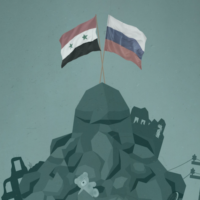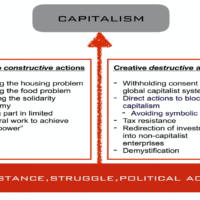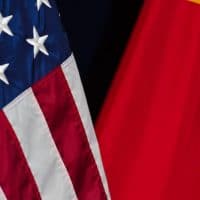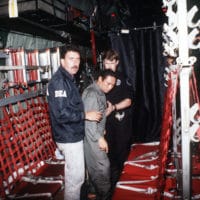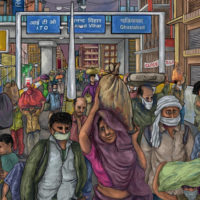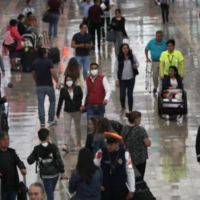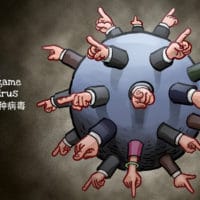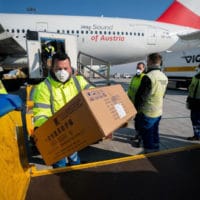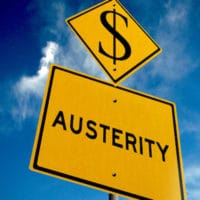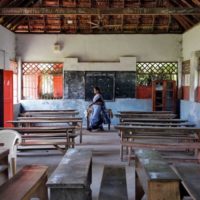-
How Russia is botching its alliance with Syria
Russia’s relationships with its client states have never been easy. Of course, managing client states is always a complicated exercise. The Kremlin’s cupboard is full of skeletons—Hungary (1956), Czechoslovakia (1968), Cuba (1962), Afghanistan (1980), Ukraine (2014) and so on.
-
Vectors of vulnerability
In the age of COVID-19, poor and working-class people are susceptible not just to illness, but also to discrimination and disdain.
-
Rinky-Dink Revolution
During this fierce period of history, many people want clarity and leadership in suggesting concrete steps toward ending the daily oppressions of capitalism. We seek a path leading to a post-capitalist society that aims not to destroy mother earth, humanity, and other life forms. If that doesn’t happen, we face an ongoing transition to fascism and an accelerating environmental catastrophe.
-
Coordination Beyond the Corporation with Sanjukta Paul
In this episode, Maxx and Scott speak with legal scholar Sanjukta Paul about imagining alternative and more just forms of economic association in ways that denaturalize the 20th-century monopolistic firm. The key, Paul argues, is to reveal and contest the public “coordination rights” that legally structure all economic activity. Sanjukta Paul is Assistant Professor of […]
-
#Unis4all: An Open Letter to the U.S. Higher Education Community
Universities can immediately bypass feckless state & federal legislatures & finance themselves directly with “Unis” supported by the Federal Reserve For a growing majority of outspoken administrators and faculty, the economic fallout associated with the Covid-19 crisis threatens to catapult U. S. higher education into a draconian age of austerity, layoffs, and closures. The question, […]
-
Can We Simultaneously Oppose Bayer/Monsanto’s Biotechnology and Support Cuba’s Interferon Alpha 2B?
Technology reflects social factors throughout its development and use. Genetically engineered crops allow mega-corporations to patent seeds, lure farmers into buying them with visions of high yields, and then destroy small farmers. Cuba’s drugs are shared throughout the world. Making a distinction between the biotechnology of agro-industry and Cuba requires understanding the difference between bioimperialism and biosolidarity.
-
The U.S. Military is hell-bent on trying to overpower China
The absence of a strong world peace movement with the capacity to prevent this buildup by the United States is of considerable concern for the planet. The need for such a movement could not be greater.
-
Asparagus and bombers
While prices and recipes for asparagus, dates and restrictions for re-opening dominated the media and many conversations, a far more significant matter found little attention. Ever since 1955 an estimated twenty American nuclear bombs have been stored underground at the U.S. Air Force base in Büchel in Rhineland. A German politician recently proposed spending $3 billion on a replacement fleet but ran into a snag.
-
Trump, asylum, and the Honduran drug traffickers
This is the third time in less than a year that the U.S. government has linked the Honduran chief executive to drug traffickers. President Hernández denies any association with narcotics smuggling.
-
Dossier 28: CoronaShock: A virus and the World
In December 2019, doctors in Wuhan (China) began to see patients with a kind of viral pneumonia. By the end of the month, an investigation began and China’s health authorities sent out a public warning and notified the World Health Organisation (WHO).
-
The Politics of the coronavirus conjuncture in Ireland
The election in Ireland in early February marked a clear acceleration of the country’s ongoing left turn over recent years. Then came the virus.
-
How a Trump administration official is quietly exploiting the pandemic to advance her family business — and right-wing agenda
As school districts reported huge problems with converting classroom learning into online instruction delivered to students’ homes, often due to lack of funding for internet-capable devices and Wi-Fi hotspots, charter school proponents spread the news of how their industry could take advantage of emergency aid.
-
Covid-19: the pandemic of the Great Acceleration
Many people around the world are familiar with this ancient Chinese proverb. Today, this lovely metaphor has materialized and taken the form of a pandemic, wreaking havoc on a system where few felt safe and most had become accustomed to merely surviving.
-
What can normalcy bring?
With COVID-19 figures flattening downward, Germany is limping back to some kind of normalcy. Auto and bike shops, book dealers, barbers and most shops less than 800 m2 can now re-open (with customers 5 ft apart). Bigger shops and department stores are squabbling: “Why not us?”
-
How China broke the chain of infection
As information about coronavirus emerged, the Chinese government and Chinese society began to organize an immense campaign against its spread.
-
Pandemic story: failures, forebodings, signs of solidarity
A great hazard looms. Under duress and as chaos mounts, capital may find it useful to revert to the extremist, even brutal, measures figuring in its past.
-
Avoid austerity to prevent a state and local coronavirus depression
Local budget cuts enacted a decade ago left states and cities dangerously unprepared for COVID-19. We shouldn’t make those same mistakes again.
-
The Social Democratic pipedream
Today in the United States, there has been an upsurge in social democracy/democratic socialism (I use these terms interchangeably; I don’t see much difference between them, at least in the U.S.) The main current of social democracy is the Democratic Socialists of America (DSA), whose overall political perspective can be described as follows.
-
Kerala is a model state in the Covid-19 fight
This overlooked region of India is a beacon to the world for taking on the coronavirus, with the leftist government setting the bar for testing, tracing and treatment standards.
-
#MintTheCoin & COVID Relief with the Modern Money Network
Rohan Grey and Nathan Tankus join Money on the Left to discuss the flurry of debate about Modern Monetary Theory (MMT) arising out of the Coronavirus crisis. We focus, in particular, on the Modern Money Network’s multi-pronged efforts to illuminate and remedy the resulting economic devastation. At the center of our conversation is Rohan’s contribution […]

